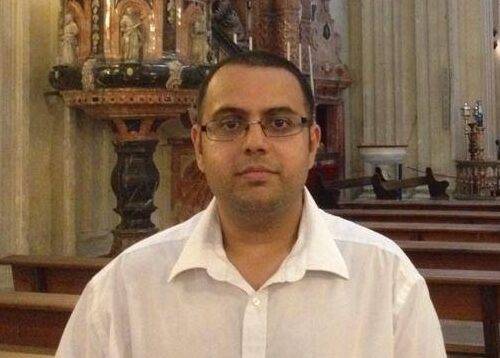Dr Reza Zia-Ebrahimi is a historian of nationalism and race at King’s College London with a particular interest in Islamophobia, anti-Semitism and French and Iranian national identity. The conversation was prompted by French President Emmanuel Macron’s recent comments about Islam being in “crisis” and policies proposed in France which appear to be unfairly targeting Muslim communities.
Zia-Ebrahimi told MEMO that while Islamophobia is very much a global issue, what makes France exceptional is how mainstream it is. “[Islamophobia and Islamophobia denialism] is practically universally upheld by all the major political and intellectual elites in France,” he said.
Denialism is where you not only attack a group but that you deny the fact that you are doing it and you attack anyone claiming that you are attacking a group. Zia-Ebrahimi sees Islamophobia denialism in France as part of the global racism and sexism denial discourse.
“If you compare [Islamophobia] in the United Kingdom for instance, the Conservative Party in power… has not adopted the definition of Islamophobia that was recently put forth by a cross party consensus. Prime Minister Boris Johnson has decided not to investigate accusations of Islamophobia within the party. All of that being said, nobody, including the prime minister, denies the existence of Islamophobia; they might deny that it is a problem, they might accommodate it, or even try to benefit from it… but nobody at that level of political authority would deny its very existence.”
In France, though, it is quite different. “Islamophobia denialism is bang at the centre of the mainstream, it is the most commonly held position; any discussion of Islamophobia, any invocation of Islamophobia in the past 20 years has been sabotaged by Islamophobia denialism.” To claim that Islamophobia exists in France can lead to accusations from the French government that you are a Jihadist, Zia-Ebrahimi pointed out.
Much of the Islamophobic discourse in France, from both the left and the right, emanates from left-wing intellectual circles. MEMO discussed the works of French writer Pascal Bruckner with Dr Zia-Ebrahimi.
OPINION: Towards a French Kulturkampf, what’s happening in France?
Bruckner, he said, “personifies” the Islamophobic turn in French intellectual tradition. “This is a chap who comes from the left and who participated in the 1968 [student] uprising, but then became very critical of it very quickly, with a lot of his colleagues who used to refer to themselves as ‘the new philosophers’ in the 1970s; I am referring to Bernard Henri-Levy [as part of this movement], Alain Finkielkraut, Glucksmann, etc. A number of them all hail from the left and came to prominence in the 1970s when they formulated a critique of Soviet totalitarianism, particularly after the publication of Aleksandr Solzhenitsyn’s The Gulag Archipelago, and they were given a hard time by the hardcore orthodox, French Communist Party, and orthodox Marxists.”
It was this critique of the Soviet Union that explains their huge success in the French public sphere and in the media particularly, said Zia-Ebrahimi, and Pascal Bruckner is one of them. “Bruckner in the division of labour in this critique of the left, which expanded into every aspect of Marxism to the idea of revolution, Bolshevism, 1968… Bruckner’s speciality, if you like, was a critique of Third Worldism, which he interprets as ‘Western self-hatred’, so the West hates itself because it colonised the rest of the world. That is presumably wrong and so the dominant ideology of the West is self-hatred. He came to prominence in 1983 by writing a book about that topic and I think that some of these intellectuals including Bruckner were losing speed, their careers in the 90s, this criticism of the Soviet Union, was not really relevant any more.”
It was then he said, that they pivoted towards criticism of Islam and trope Islamism, trope Jihadism. “So I argue that the boundary between Islam and Islamism is always deliberately blurred. A lot of expressions of Muslimness such as the wearing of the Islamic hijab are automatically interpreted as sympathy with Jihadism or Islamism. So he strikes back in the noughties with a critique of Islam, which is essentially coated in the same terms, you take his old text and change Gulag for Islam and you pretty much have the more recent text.”
The texts produced by the likes of Bruckner are read widely and Islamophobes in other countries including the US and Britain, pick them up. Bruckner even wrote a book denying the existence of Islamophobia. It is likely, therefore, that Islamophobia will remain part of mainstream French politics for the foreseeable future.








